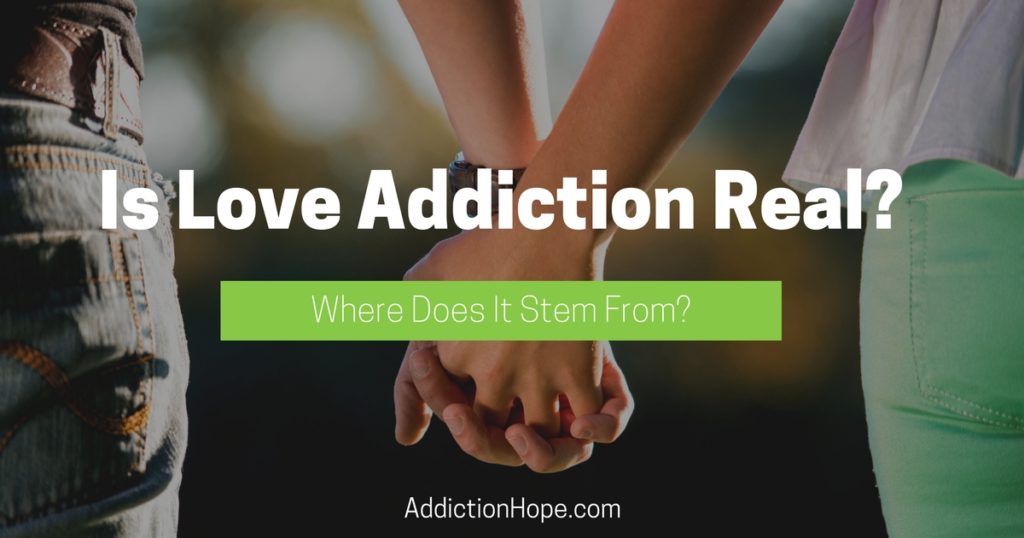
To an outsider, love addiction may seem like a harmless problem. Love isn’t a drug you can overdose on or a substance that literally poisons your body. However, it is a force that can cause immeasurable emotional and psychological damage.
Most love addictions stem from experiences and trauma early in life. Tracing the roots of love addiction can help you learn more about the individual and address the problem at its source.
The Parent-Child Relationship
The very first relationship in most people’s lives is the one between parent and child or child and caretaker. An absent parent or caretaker or a damaged relationship can lead to the following feelings:
Sense Of Abandonment
If a child doesn’t have a parent or caretaker relationship, or if it’s broken, feelings of abandonment set in at an early age. These feelings of loss can accompany the child into other significant relationships.
Love addicts are terrified of abandonment. They do not recognize the end of a relationship as a normal part of life. Instead, they react disproportionately to the circumstances, leading to unnecessary pain and devastation.
Belief That One Is Unlovable Or Not Good Enough
Parents and caretakers are supposed to love a child unconditionally and be there in times of need. If this relationship is absent, the child can grow up believing he or she is unlovable or not good enough.
This belief leads to the compulsive need to seek reassurance from other people – a desperation for love. This need, in turn, causes love addicts to cling to even the smallest signs of interest, turning a passing glance into something much deeper. Sadly, these behaviors are what make many partners leave for good.
Parents Addicted To Love
Children learn many of their habits and behaviors from their parents. When a child has a parent who is a love addict, he or she often models his or her life on that parent. A mother with low self-esteem and abandonment issues, for example, can serial date and experience extreme highs and lows. The mother then inadvertently passes these behaviors on to her child, who might grow up believing this is the only type of relationship there is.
The unhealthy messages a parent’s love addiction sends to children is powerful and can haunt a child as he or she starts to date. Thus, the child will be more prone to rely on partners for fulfillment and validation, just as the parent “taught” him or her.
The child might grow up believing that love is full of ecstatic highs and crushing disappointments. This will make him or her inclined to date partners who are emotionally unavailable, perpetuating the cycle. When they have children of their own, the cycle begins again.
Traumatic Childhood Experiences
Another root cause of many love addictions is trauma in a child’s life, such as:
- Sexual assault
- The death of a parent
- Child abuse
Many survivors of early-in-life traumatic experiences are emotionally stunted, blaming themselves for the traumatic event(s). They develop feelings of self-hate and low self-esteem, and turn to their partners for validation. The initial high of being with someone who fills this need is addictive, and the crash or “withdrawal” when a relationship ends drives the need to find another fix.
Treatment Options That Get At The Roots Of Love Addiction
Luckily, recovery from love addiction is possible. Break the cycle of emotional damage and unhealthy relationships by seeking help from Sex and Love Addicts Anonymous (SLAA) and other therapy programs. SLAA has a 12-step program similar to Alcoholics Anonymous to help love addicts learn how to have a relationship without inappropriate reactions or assumptions.
Don’t let a childhood experience ruin your chances of genuine happiness in love. Love addicts can undergo psychological counseling and therapy to aid the recovery process. It won’t be easy, but with the right mindset and support group, recovery is attainable.
A recovered love addict takes on relationships with realistic expectations, more awareness and more boundaries for love. There is hope for struggling love addicts who take the initiative to get help.
Community Discussion: Share Your Insight
Do you know someone who could be classified as ‘”addicted to love”? Which of their behaviors stand out to you the most? Please share below.
